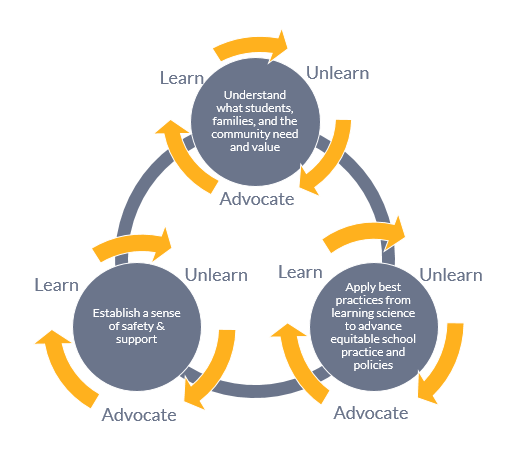We must resist thinking in siloed terms when it comes to social-emotional learning (SEL), academics, and equity. These elements go hand in hand—and we must recognize that we cannot do this work outside of sociopolitical and racial context. An instructional approach that isn’t grounded in racial equity will only perpetuate injustice and inequities.
We’ve identified three principles to guide school- and system-level work in creating an environment that fosters social-emotional learning, academics, and equity. As you engage with each principle, ground your work in the learn, unlearn, and advocate process.
Principle 1: Understand what students, families, and the community need and value.
Principle 2: Establish a sense of safety and support.
Principle 3: Apply best practices from learning science to advance equitable school practice and policies.
By engaging in a process to learn, unlearn, and advocate with these principles, schools and systems can focus on establishing an environment—in-person or virtual—in which they authentically integrate equity-informed social-emotional learning with academic instruction. While context and needed outcomes will be as varied as districts themselves, this framework will guide and inform and an equity-informed approach to this critical work.


